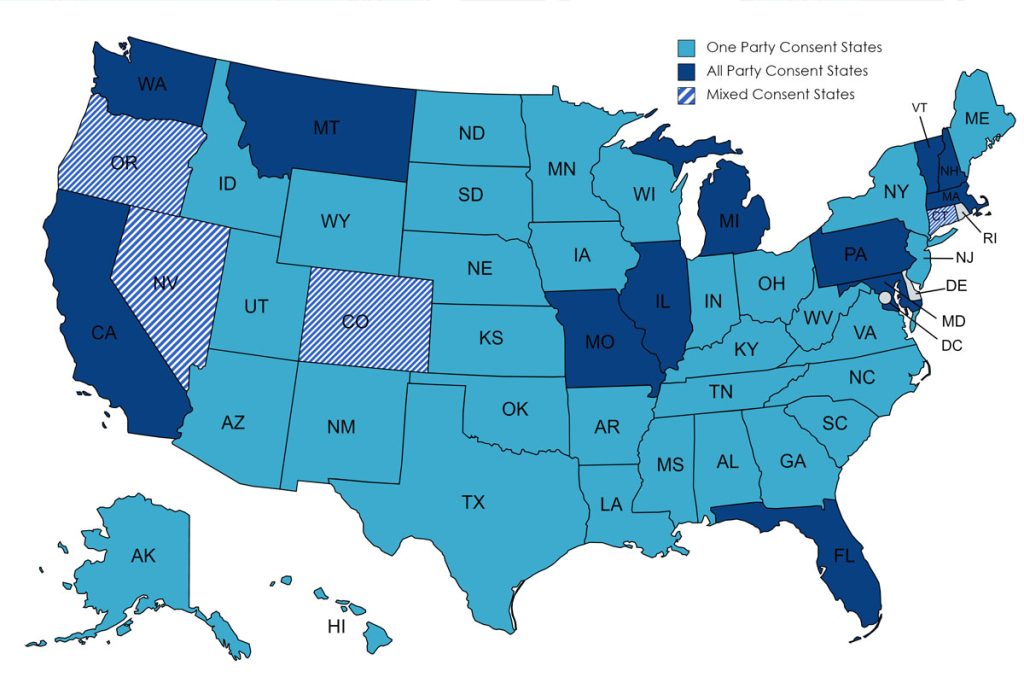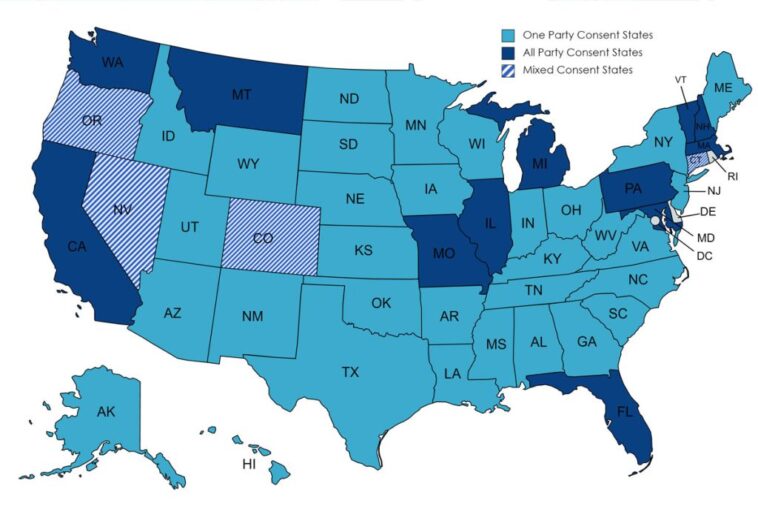 “`html
“`html
The Complex Landscape of Recording Conversations in Arizona
Recording conversations without consent can be a contentious issue, governed variably across the United States. In Arizona, the legal framework is established under the Arizona Revised Statutes (ARS) § 13-3005. This makes Arizona a one-party consent state, where recording a conversation is generally lawful if one party to the conversation consents. Understanding the intricacies of this law is vital for residents, businesses, and legal professionals alike.
Understanding Arizona’s One-Party Consent Law
What Does Arizona Law Say About Recording Conversations?
ARS § 13-3005 outlines that it is legal to record a conversation if you are one of the participants or if you have obtained consent from one of the parties involved. This law applies not only to in-person conversations but also to telephone and virtual communications, such as video conferences. Violations occur when a conversation is intercepted without being part of it and without any party’s consent, which can lead to charges of unlawful interception. Thus, individuals in Arizona must be cautious and ensure they adhere to these guidelines to avoid legal repercussions.
Consequences of Violating Recording Consent Laws
The penalties for recording without consent in Arizona can be severe, contingent on the nature of the intercepted conversation. Violations may be classified as either a Class 5 or Class 6 felony, potentially resulting in significant prison time, fines, and civil liability. A Class 5 Felony can lead to a prison sentence of up to 2.5 years for a first offense, as well as hefty fines. Civil suits could also be pursued by victims claiming invasion of privacy, causing financial or emotional distress.
Exceptions to Consent Requirements
Circumstances Permitting Recordings Without Consent
While Arizona’s law generally requires that one party consents to the recording, there are notable exceptions. For instance, law enforcement officials may record conversations if authorized by law, such as with a warrant. Additionally, certain public conversations where there is no reasonable expectation of privacy do not require consent. Furthermore, employers may monitor employee communications if they have informed them about monitoring policies in place.
Reasonable Expectation of Privacy
The expectation of privacy is a pivotal concept in determining the legality of recorded conversations. Situations wherein individuals presume their interactions to remain private, like in their homes or private offices, fall under this consideration. Recording in such contexts without proper consent is typically deemed illegal. Conversely, in public venues where privacy is not anticipated, recording may not necessitate consent.
The Role of Recording Laws in Criminal Cases
Impact on Legal Proceedings
Recording laws significantly influence criminal trials, affecting evidence admissibility and legal defense strategies. Recordings obtained without adhering to consent laws can be challenged and potentially excluded from court proceedings. This reflects the importance of lawful evidence collection, emphasizing the protection of Fourth Amendment rights against unwarranted surveillance and violations of privacy.
Combating Unlawful Recordings in Defense Cases
Seasoned criminal defense attorneys like Josh Kolsrud, founder of Kolsrud Law, leverage an in-depth understanding of Arizona’s recording laws to safeguard clients’ rights. With a robust background across thousands of cases, attorneys can pinpoint procedural missteps in evidence collection, providing robust challenges to unlawful recordings in court.
Navigating Potential Legal Challenges
Seeking Legal Guidance
For individuals facing charges related to unauthorized recordings, obtaining expert legal assistance is crucial. Professionals experienced in this field understand the subtleties of Arizona recording statutes and can provide informed advice tailored to individual circumstances. Whether defending against allegations or ensuring compliance with the law, legal expertise is indispensable.
Benefits of Legal Representation from Kolsrud Law
Josh Kolsrud, a respected figure in Arizona criminal defense, offers invaluable experience and dedication to his clients. His prior tenure as a prosecutor, coupled with significant achievements in tackling major crimes, positions him uniquely to handle complex cases involving recording laws. Clients benefit from Kolsrud’s meticulous approach to legal strategy, focusing on integrity and a comprehensive defense.
Concluding Thoughts: The Vital Importance of Informed Compliance
Understanding and adhering to Arizona’s recording laws is not only a legal obligation but a protective measure against legal repercussions. The ramifications of unlawful recording can be extensive, affecting one’s legal standing, financial well-being, and personal reputation. Consulting with knowledgeable legal professionals can mitigate risks and ensure that one’s actions remain within the bounds of the law.
For consultation or to address legal issues concerning recording laws, individuals are encouraged to contact Josh Kolsrud at Kolsrud Law. His experience and commitment provide a reassuring choice for navigating these complex legal waters. Contact Kolsrud Law at (480) 680-9769 to schedule a consultation and gain the legal insight needed to confidently tackle these challenges.
“`
Originally Post From https://kolsrudlawoffices.com/record-conversation-without-consent-az/
Read more about this topic at
Is Recording a Conversation Legal in Arizona?
Arizona
